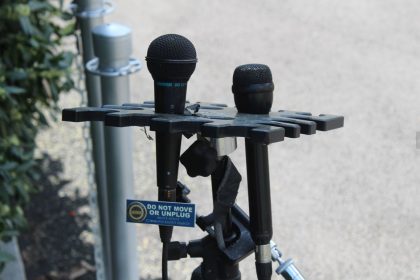Bill Aimed at Saving Local Journalism Included in Reconciliation Package

WASHINGTON — A key piece of a bipartisan proposal to sustain local journalism has passed through the House Ways and Means Committee and is now part of the $3.5 trillion budget reconciliation package currently awaiting a vote in the full chamber.
When it was proposed by Reps. Ann Kirkpatrick, D- Ariz., and Dan Newhouse, R-Wash., in June, the Local Journalism Sustainability Act aimed to provide a pathway to financial viability for local newspapers through a series of three tax credits.
The first credit would have incentivized annual subscriptions to local papers that primarily produce content related to local news and current events and could have also been used for non-profit publications.
Another would have incentivized small businesses to advertise with local newspapers, as well as local radio and television stations.
While those provisions have been set aside for now, a proposal, calling for employment-tax credits up to $12,500 per quarter for print or digital local newspapers employing local journalists, has made it into the reconciliation package.
The credits would be available for five years, helping stanch layoffs gutting newsrooms while news organizations retool to better compete online, proponents of the bill said.
“Local journalism is a bedrock pillar of communities across the United States,” Kirkpatrick said on introducing the original bill in June. “Unfortunately, journalistic endeavors throughout the country face major economic struggles that put the future of many publications in serious jeopardy.
“These struggles existed before COVID, but the pandemic only made them more severe. We need to make sure these publications can sustain themselves through this crisis and beyond.”
Newhouse, who represents a largely rural district in central Washington state, said local news “is the only way to receive important information and updates” in such areas.
“Unfortunately, many of our locally-owned newspapers have been struggling to make ends meet,” he said, adding that tax credits are a powerful vehicle for helping small newspapers remain resilient “and continue to provide in-depth perspectives that inform their readership regarding local current events.”
Rep. Suzan DelBene, a member of the Ways and Means Committee, fought to make sure at least one of the tax credits proposed in the original bill made it into the reconciliation package.
There is no date certain for a House vote on the reconciliation bill — Majority Leader Steny Hoyer has said only that it would happen during “this work period” — but should it pass the House as Democrats hope, it will then move to the Senate, where the tax credit for local journalism already has powerful supporters.
The companion bill to the original House measure was co-sponsored by Sens. Maria Cantwell, D- Wash., Mark Kelly, D-Ariz., and Ron Wyden, D-Ore.
“The COVID-19 pandemic made it crystal clear that local reporters and newsrooms are essential to keeping the public informed and safe, but their importance spans well beyond health emergencies,” Cantwell said as the Senate bill was introduced in July.
“At its core, local news is about holding the powerful accountable. The strength of our democracy is based in truth and transparency, and local newsrooms are on the ground in our communities asking the critical questions, countering misinformation, and telling our stories. We have to protect these vital parts of our communities,” she said.
Majority Leader Charles Schumer and Sen. Joe Manchin, D-W.Va., were among the early supporters of the bill.
Wyden, chair of the Senate Finance Committee, has vowed to “pull out all the stops” to make sure the tax credit remains in the bill as it moves through the Senate.
He recently told the Seattle Times that he’s been making the case “that democracy depends on original reporting and local newspapers are responsible for more than half of that.”
“We’re all in,” Wyden said.
























